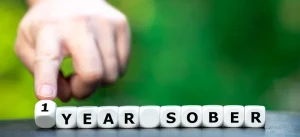Effective Strategies for Relapse Prevention
The findings revealed that among the participants, 298 individuals (88.9 percent) had encountered childhood adversities, with 44.4 percent of them reporting more than five childhood traumas. Notably, relapse was observed in 40.9 percent of the participants, while an extended hospital stay was recorded in 71.1 percent of cases. Predictors for prolonged hospitalization included experiences of emotional abuse, substance use, and residing in rural areas. Recovery from addiction is a challenging journey, filled with both triumphs and setbacks.
General prevention theories
Or they may be caught by surprise in a situation where others around them are using and not have immediate recourse to recovery support. Or they may believe that they can partake in a controlled way or somehow avoid the negative consequences. Sometimes people relapse because, in their eagerness to leave addiction behind, they cease engaging in measures that https://ecosoberhouse.com/ contribute to recovery. Research has shown that this approach is particularly effective because it invests in creating a sense of community and shared responsibility among all members of the family. Rather than relying solely on professional treatment providers, families are empowered to take an active role in supporting their loved one’s recovery.
FAQs about Helping Your Loved One Create A Relapse Prevention Plan: A Family-Centered Approach
If you’re in addiction treatment, most centers will have you develop a relapse prevention plan at some point. The goal is to avoid relapse entirely, but life happens, and for many people, relapse becomes a stepping stone on the way to permanent sobriety. Sometimes, it’s challenging to explain to new friends why you choose to abstain from drugs and alcohol. If this person ignores your reasoning and continues to pressure you, this may signify that they do not care for your well-being as much as you do. It can be hard to distance yourself from others but know that there are people who will support your recovery efforts.
Relapse Prevention Plan Template
- In case of emergency, have a clear plan with proactive steps, such as calling a specific person, attending a support group meeting, or going to a safe place.
- Addiction Resource is an educational platform for sharing and disseminating information about addiction and substance abuse recovery centers.
Alan Marlatt, Ph.D., referred to a lapse as an abstinence violation. According to Marlatt, what matters after a lapse is the person’s emotional response to the violation. This response can be a good indicator of whether the individual will relapse.
- This process involves identifying the positive qualities and skills that members of the family possess, such as good communication skills, empathy, or problem-solving abilities.
- Knowing your individual triggers is critical, as once you’ve identified them, you can craft plans to avoid them altogether or deal with them if they appear.
- Occasional, brief thoughts of using are normal in early recovery and are different from mental relapse.
- In the realm of addiction, relapse has a more specific meaning—a return to substance use after a period of nonuse.
- Patients are encouraged to review this list when they need motivation or experience triggers.
- It’s not uncommon for people who struggle with addictions to relapse after completing treatment, and it doesn’t mean treatment failed.
- Many think a lapse means the failure of a patient to recover successfully.
- These sessions provide practical tools for managing triggers and cravings and developing healthy coping strategies.
- Later, when using turns into a negative experience, they often continue to expect it to be positive.
- It’s also important to note that relapse isn’t a requirement for your recovery journey just because it’s common — it’s possible to get sober on your first try and stay that way.
No matter how strong your willpower is, you can’t fight relapse alone. You must accept help from supportive family and friends when you need it. This technique involves running “a mental videotape” of the entire relapse process. It involves going through the process from start to finish and noting all the changes that would occur if you give into the temptation.
With our limited coping skills, failure to employ an alternative plan, and unwillingness to talk to anyone, we increase the risk of going back to our old behavior. This shows our immediate relapse prevention plan need to develop a diversion plan to deal with cravings. We go to a smoke-filled bar, or hang out with support group cynics, or phone a friend who berates anyone who exercises.
Examples are the Marlatt and Gordon model and the Gorski-CENAPS Model for Recovery and Relapse Prevention. What is more, negative feelings can create a negative mindset that erodes resolve and motivation for change and casts the challenge of recovery as overwhelming, inducing hopelessness. A relapse or even a lapse might be interpreted as proof that a person doesn’t have what it takes to leave addiction behind. Typically, those recovering from addiction are filled with feelings of guilt and shame, two powerful negative emotions. As a result, those recovering from addiction can be harsh inner critics of themselves and believe they do not deserve to be healthy or happy. Therapy not only gives people insight into their vulnerabilities but teaches them healthy tools for handling emotional distress.
One vital component of the relapse prevention plan is looking out for and avoiding contact with potential triggers during treatment. If one has already relapsed in the past, it is essential to write down the list of triggers that led to recidivism. Also, a list of personalized and generalized warning signs before a potential slip-up is helpful. This may include things such as how one felt before relapsing, activities, warning signs such as increasing isolation, mood swings, a decline in self-care, developing cross addictions, and so on. Regularly reviewing and updating your relapse prevention plan is essential for its effectiveness.






Plaats een Reactie
Meepraten?Draag gerust bij!